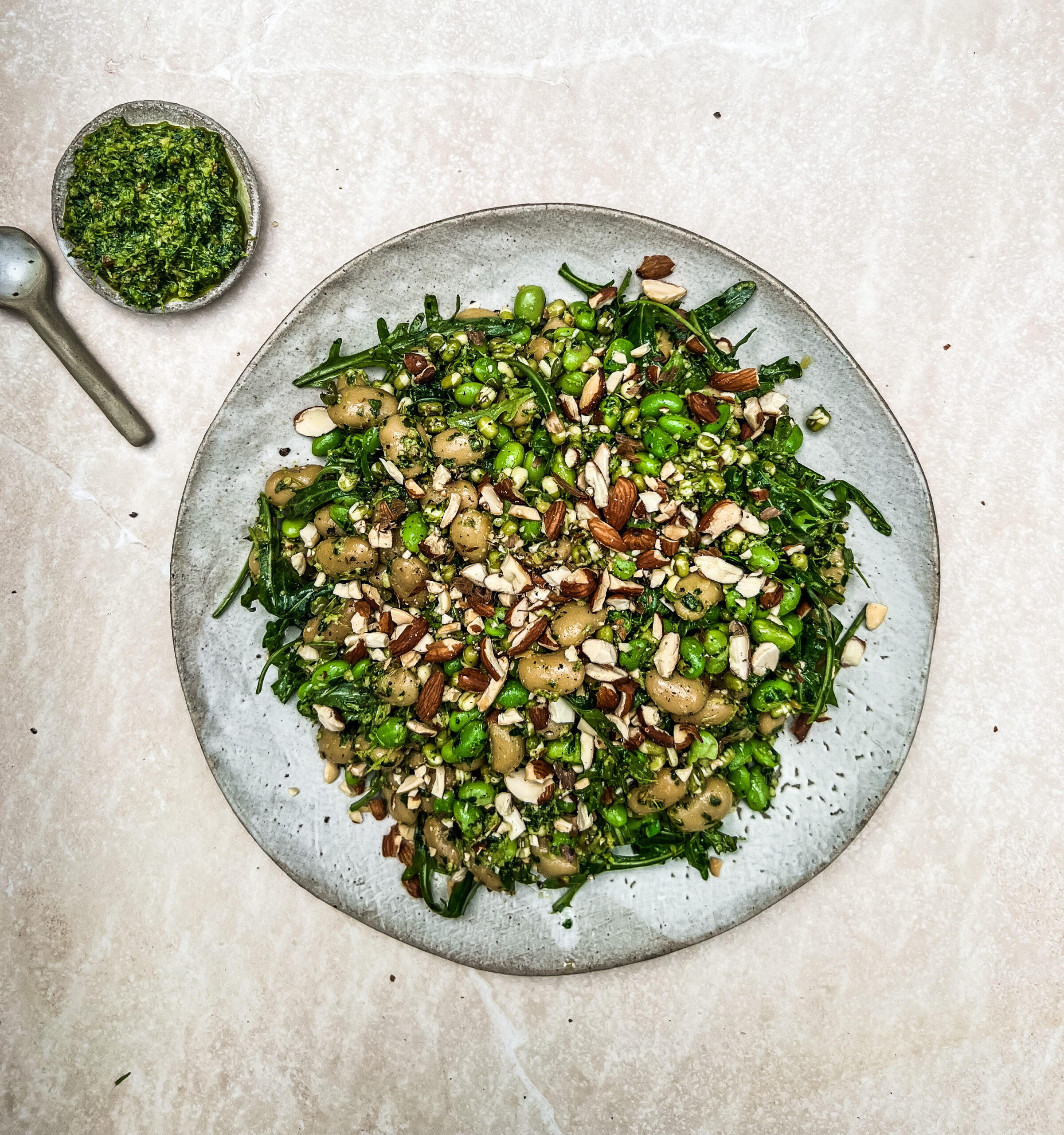How Stress Can Affect Your Health And How To Reduce it
This post was created in collaboration with Melrose Health.
Feel like no matter what you eat, you just can’t seem to get on top of your issues?
Stress might be to blame.
We’re starting to see the health industry take a holistic approach to wellness. This means that health symptoms and body systems are all intimately interconnected. We can no longer look at one body system in isolation, because the human body doesn’t work in isolation!
And it turns out, stress may affect us in many ways beyond just feeling “stressed”. Stress could be to blame for (or at least play a part in) issues with fertility, digestion, cravings, hormonal health and sleep.
But before we get into these connections, what actually is stress?
Stress can have multiple meanings.
It may refer to a feeling of overwhelm or pressure. But stress also manifests physiologically by way of hormones, where we see an upregulation of cortisol and adrenaline.
And stress isn’t always a bad thing! A stress response may be needed to keep us alert, and it’s natural for our cortisol levels to rise in the morning and dip in the evening.
But excess stress, and particularly chronically, can leave us with some not so great outcomes. Let’s explore some of the effects of stress, as well as some easy methods to reduce it.
Gut Health

Did you know the gut is in constant communication with the brain?
Well really the brain is in constant communication with all parts of the body, but when it comes to the gut, there is a specific network of neurons called the Gut Brain Axis, which is responsible for sending messages between these important organs, directly linking the cognitive centres of the brain with functions in digestion.
What’s more is the billions of bacteria that live in your gut, called the microbiota. And these are responsible for so many vital human body functions like immunity, metabolism of substances and production of metabolites we need to function. In fact we can’t even survive without our microbiota!
Studies show that exposure to stress can have both short and long term effects on the gut. Stress affects interactions of the gut brain axis, remember these two are in constant communication so if there is something stressful going on up top, it’s likely going to affect the gut in some way. There is evidence that stress may lead to many digestive problems and even lead to IBS or IBD via this connection between these important organs.
The major effects of stress on gut physiology include
- Alterations to the fine balance of bacteria that live in our guts.
- Alterations in gastrointestinal motility, which is the movement of food all the way from our mouths to the other end.
- Changes in gastrointestinal secretion, which is the release of digestive juices that contain enzymes we need to break down the food we’re eating.
- Increase in intestinal permeability, which is also called leaky gut.
So you can see, if you are struggling with digestive problems, or perhaps you find that despite eating the same foods, all of a sudden you feel like they aren’t digesting very well, perhaps have a look at your stress levels.
Sleep

This one may sound obvious, and it’s likely you’ve experienced it first hand. When you are stressed, it is much harder to fall and stay asleep.
When you are in the stress response, your body upregulates the hormones that keep you alert and awake, and down-regulates the hormones that help you relax and fall asleep. The sleep wake cycle is regulated by cortisol which is also known as the “stress hormone”. Cortisol rises in the morning when you want to wake up and achieve things, and it dips in the evening when you want to go to sleep.
When you are chronically stressed you may experience insomnia, a racing mind, inability to fall or stay asleep, or inability to get into a deep sleep, which can prevent you from waking up feeling refreshed.
Our sleep is important for so much that goes on in our body, and it also affects your diet.
Lack of sleep is associated with cravings for junk and it impairs decision making through multiple mechanisms. And in fact, research has shown that poor sleep impacts your hormones too. It increases ghrelin (the hunger hormone) and reduces leptin (the hormone that allows you to feel satiated), making sleep deprivation another one of the major causes of cravings and overeating.
So even though you thought you could survive on little to no sleep, the effects of this can be felt throughout the entire body.
Sugar Cravings

Did you know you are more likely to crave junk when you are sad or stressed?
When you eat sugar, dopamine, which is the neurotransmitter responsible for the feelings of pleasure, is released into an area of the brain that signifies reward. This means that when you take that first lick of ice cream, you think “mmmm that felt good!”.
The thing is, your body learns this response. Next time you are feeling down, depressed, sad or stressed, your body craves something that gives you a release of dopamine, and that is sugar!
After a while, your body builds up a tolerance to this dopamine releasing trigger, and so as time goes on, until you cut the cycle, you slowly need more and more of the stimulus (sugar) to achieve the same “stress-relieving” effect.
Sound familiar? This is a similar process to drug addictions. Drug addicts continuously need more and more to feel the same effect as they build up tolerance to the drug.
But that’s not all.
Cortisol is responsible for a number of body functions and it plays a role in the regulation of blood sugar.
Cortisol releases glucose from the liver, because in the case of a threat, you may need the glucose for instant energy to be able to run away from something. But in modern times, we aren’t really running away from anything, so this glucose has nowhere to go!
For this reason, elevated cortisol (aka you are stressed) means elevated insulin. But the presence of cortisol actually blocks the action of insulin, and this puts you at a risk of insulin resistance, which makes weight maintenance or weight loss incredibly difficult.
So what should you do?
Look, I know all this information on stress can be, ironically, stressful! Especially when you are bound to work and life commitments that you can’t just walk away from and live a totally stress-free life.
It’s ok. There are a number of simple things you can do to manage stress, without having to block out hours in your calendar for deep meditation.
Firstly you can focus on your breathing. When we are stressed our breath naturally shortens and we don’t get enough oxygen in. By focusing on deep slow breathing we can signal to our bodies that there isn’t a need for the stress response.
You can also spend time in nature! This is shown to evoke a sense of calm and reduce symptoms of stress – so spend time outdoors like walking on the beach, swimming in the ocean, bushwalking or even just sitting in a park.
And of course nature is filled with so many powerful plants that lower stress hormones and help our bodies adapt to stress. Some of these include ashwagandha, holy basil and rhodiola, all of which help reduce stress or manage symptoms of stress. Vitamins and minerals also help the body deal with stress like magnesium which aids sleep and promotes muscle relaxation. So consider a supplement to incorporate into your stress reducing regime, and don’t forget, reducing stress is only ever going to do your mind and body good!
Liv xx










